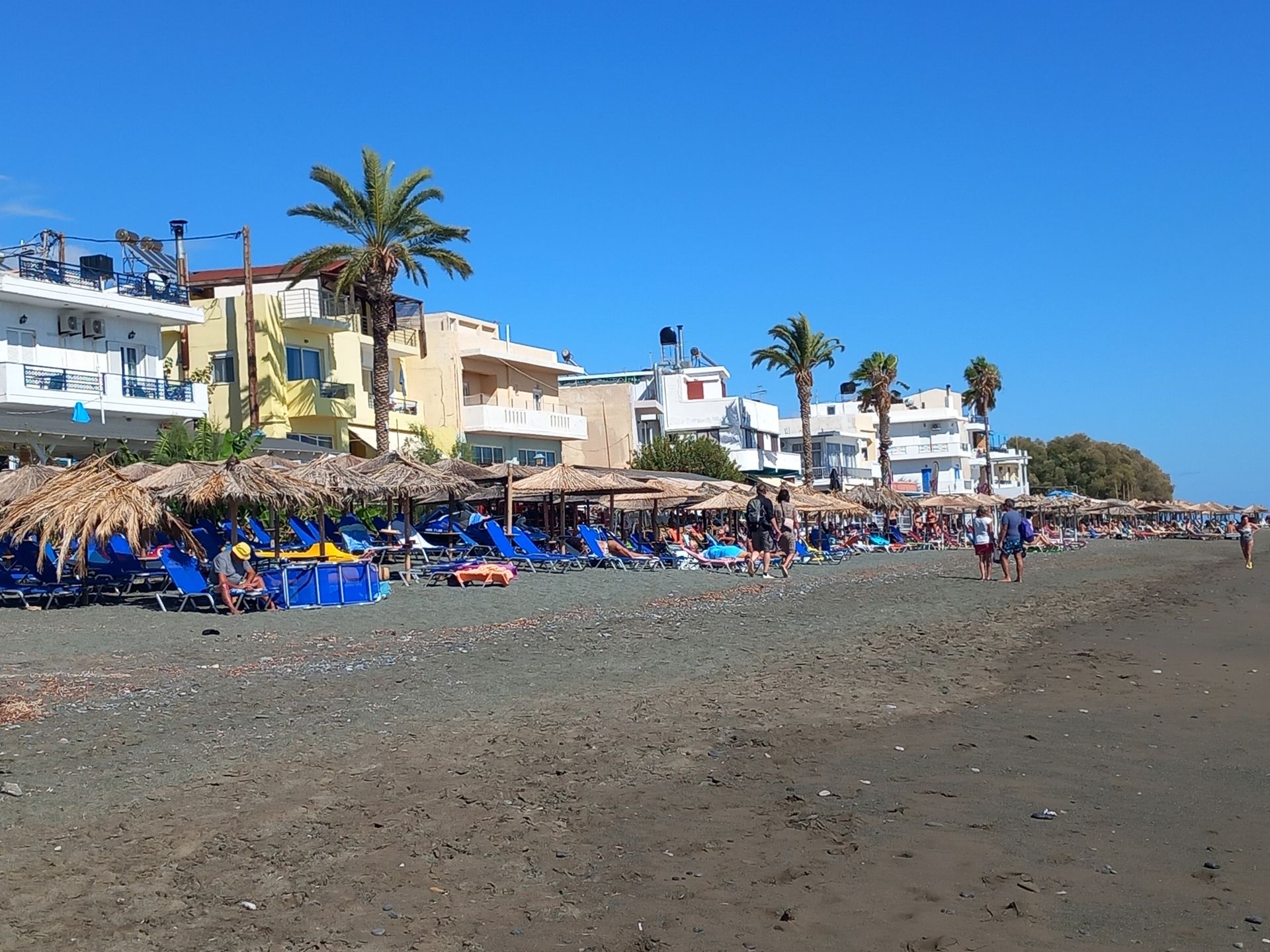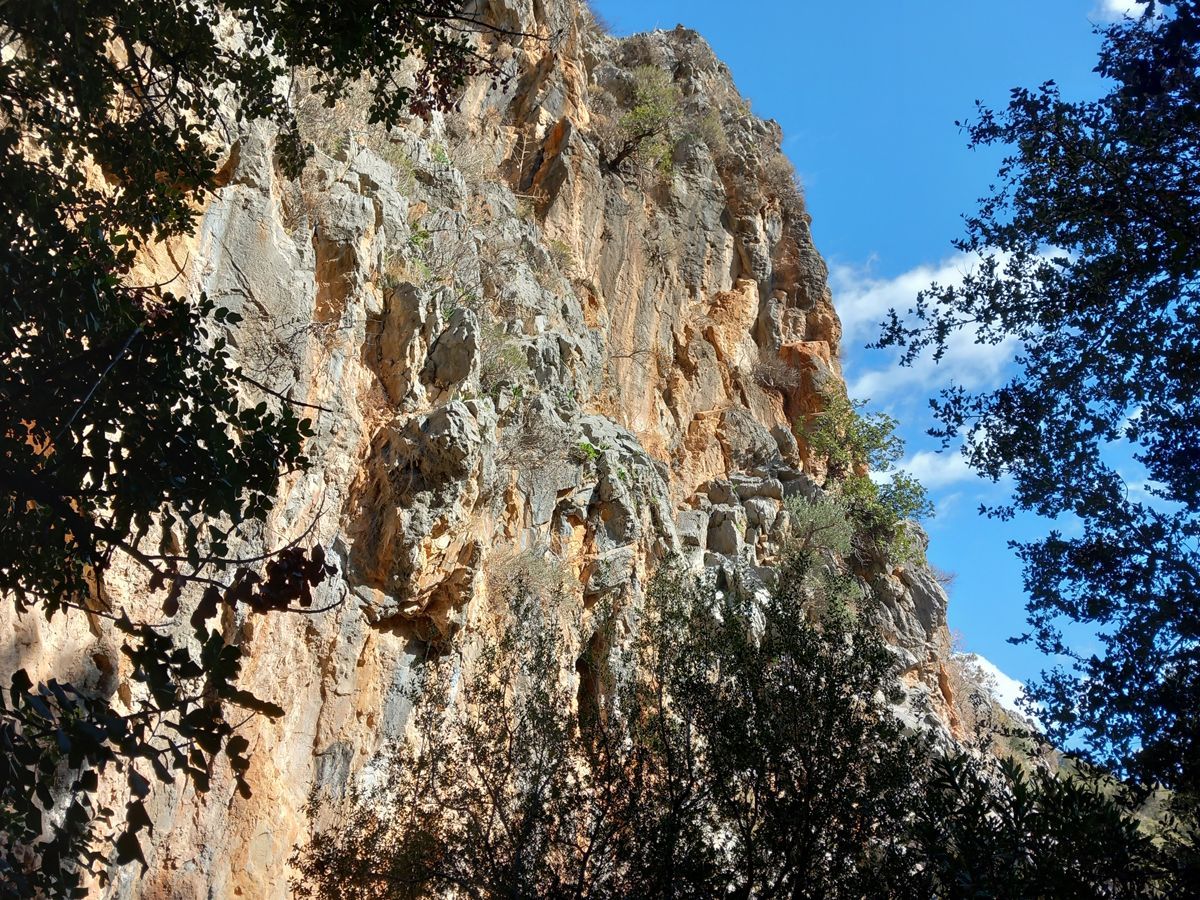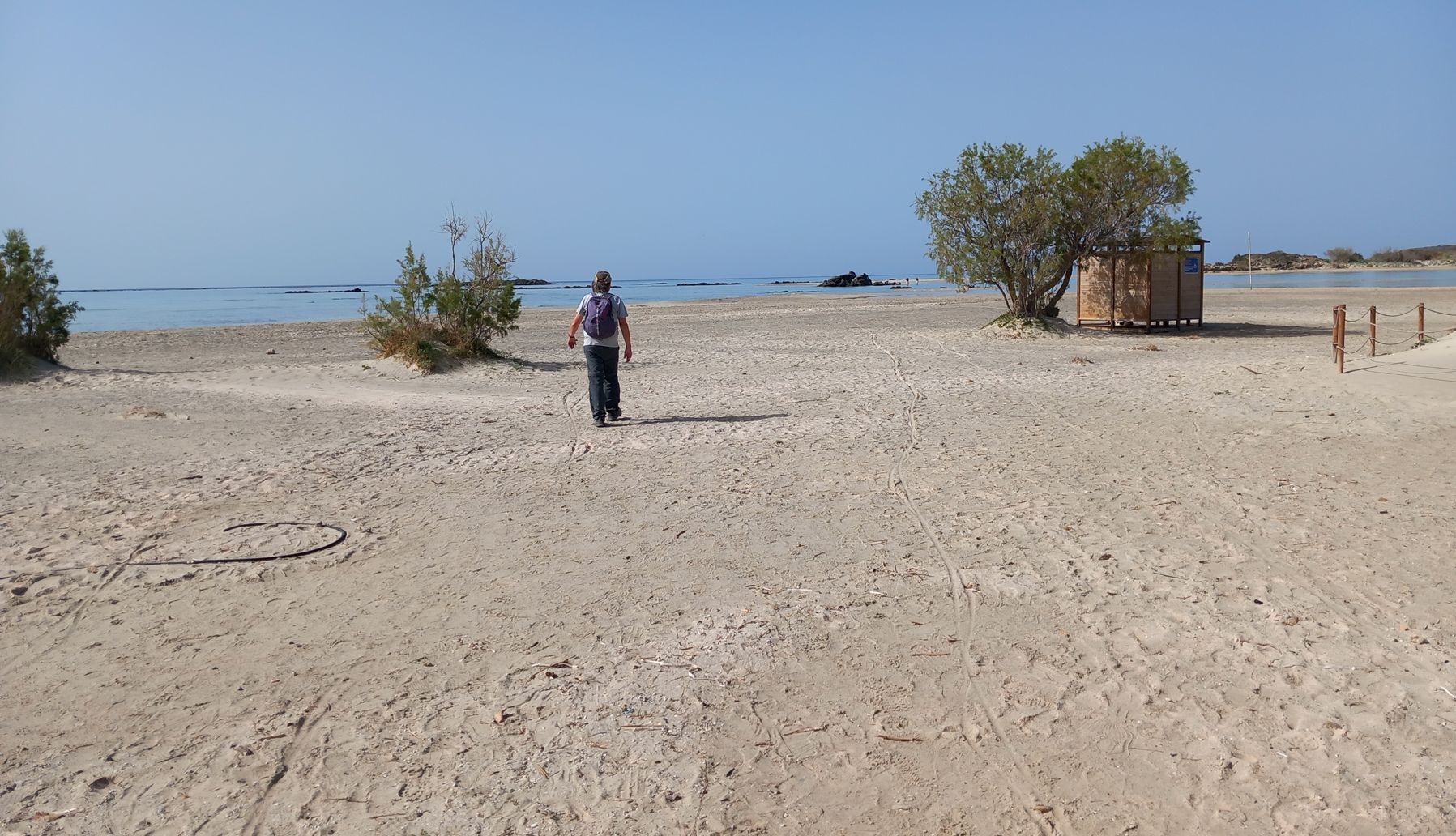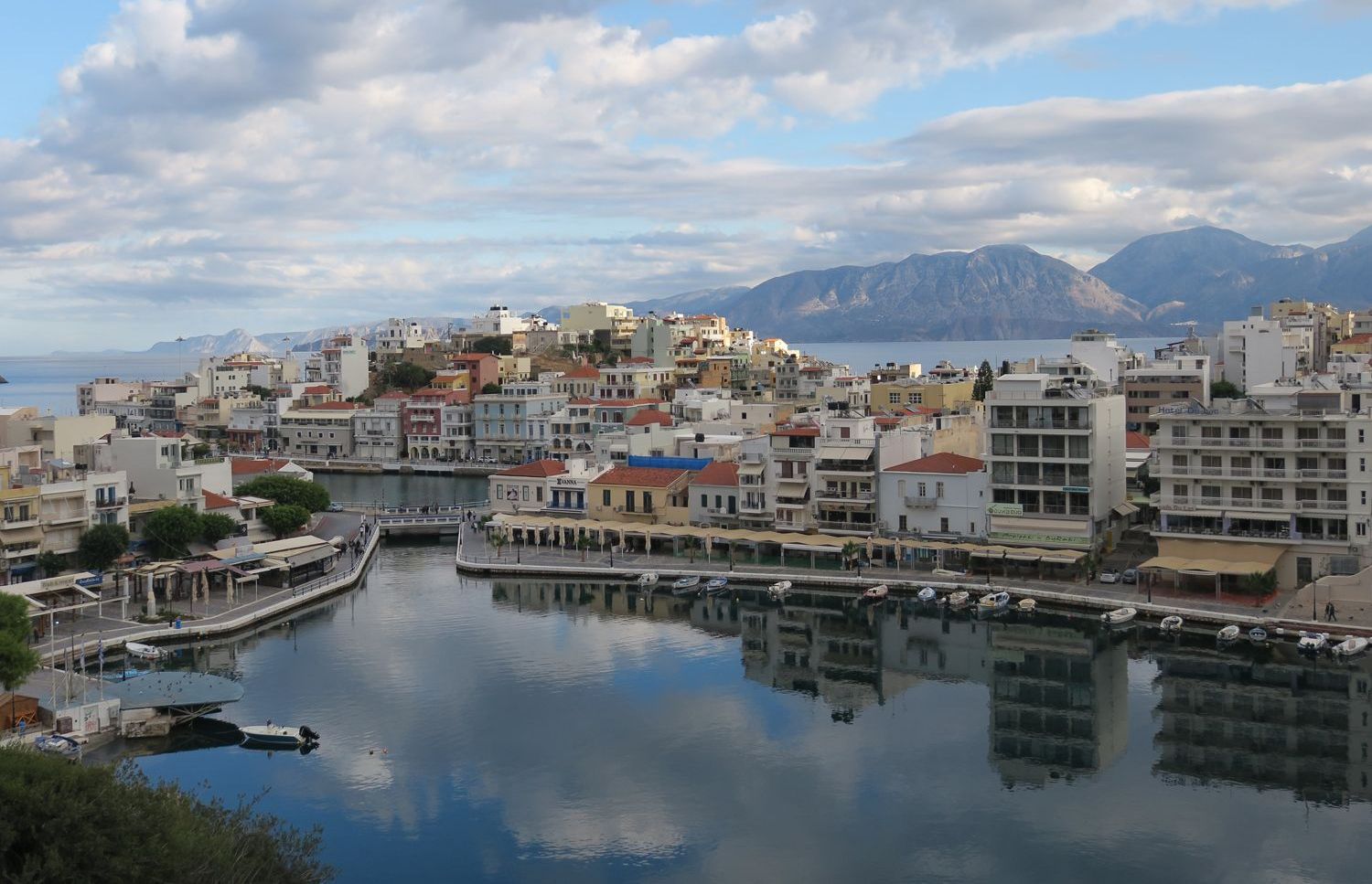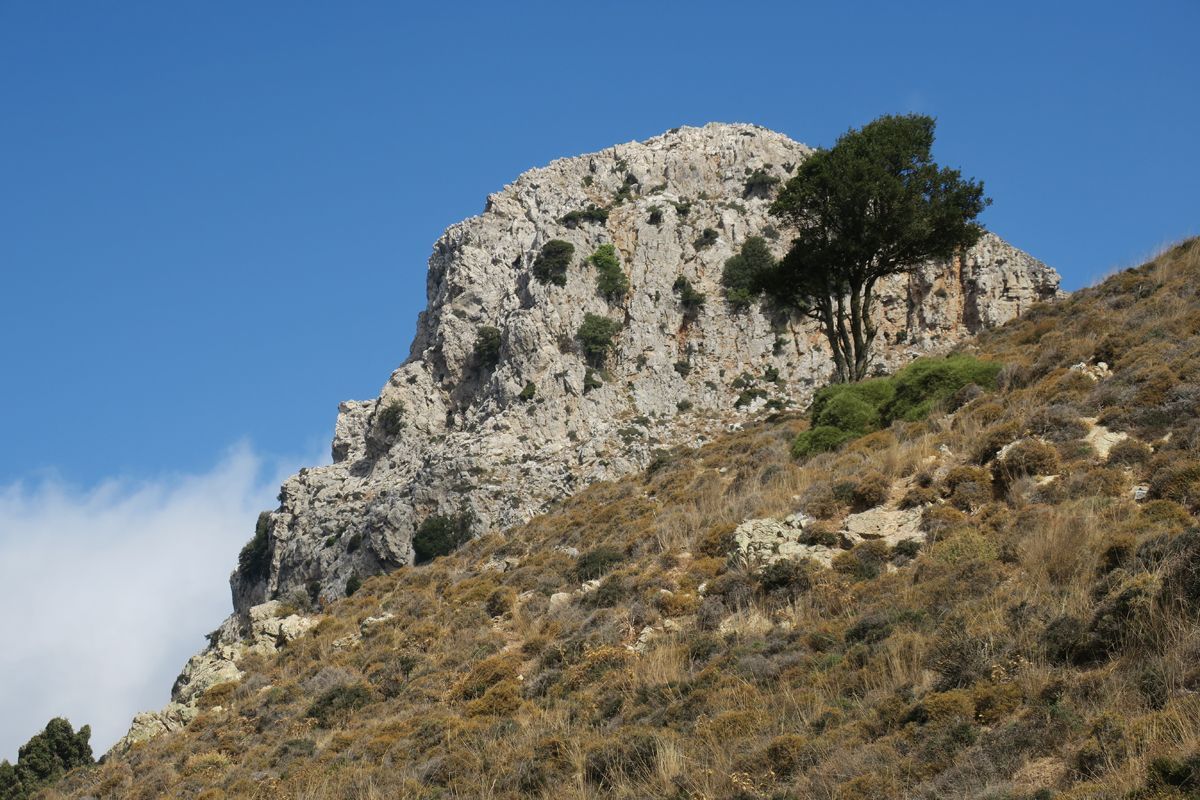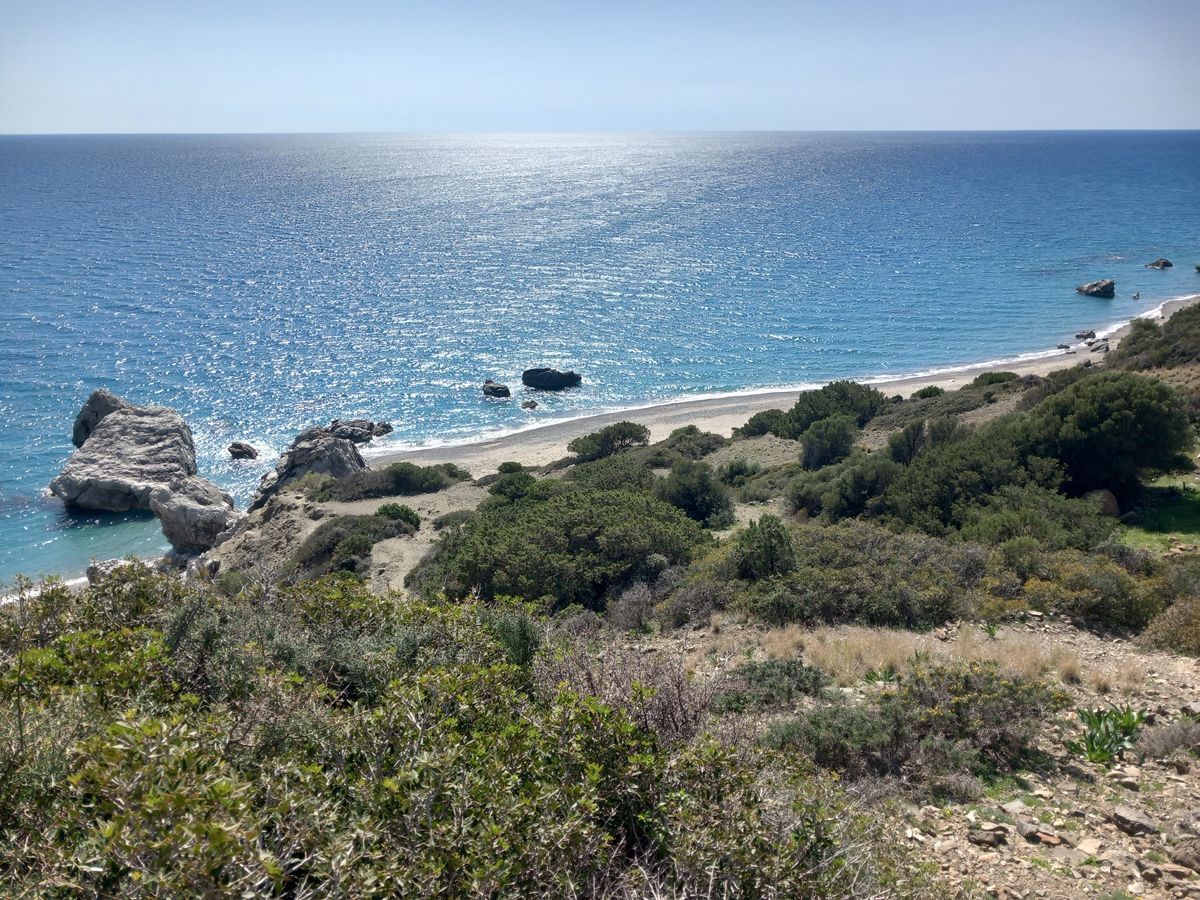6. Dezember 2024
Von Weinbestellungen und Buckel-Is – Griechisch lernen ist nichts für Feiglinge
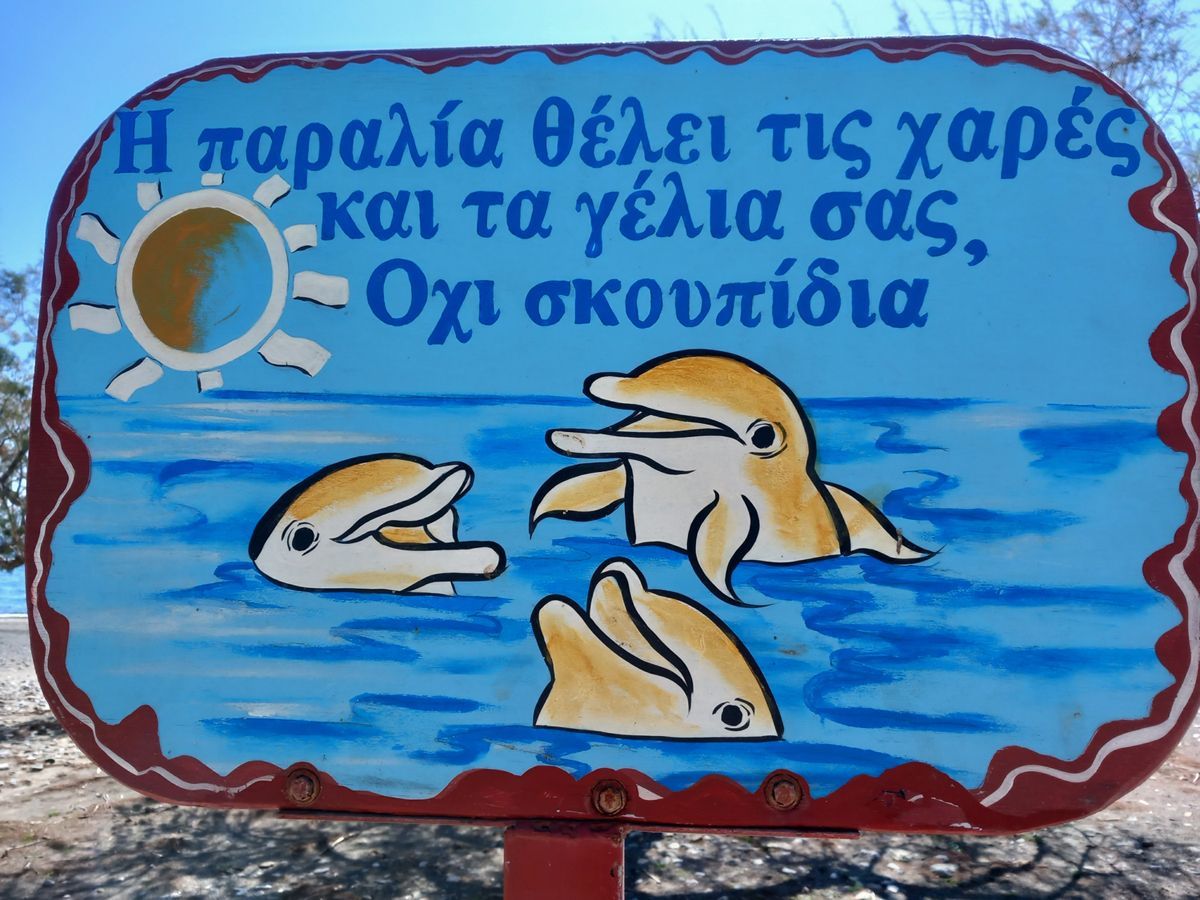
Wine orders and so many ways to write “I” - learning Greek is a special thing
Greek is said to be one of the most difficult languages in the world. That may be true, but what choice do you have if you are often on Crete (for the third winter, by the way) and no longer want to be just a tourist who can only manage “Evcharisto” (thank you) and “Kali nichta” (good night).
So, get to work and keep your ears open for how the locals talk. But - all beginnings are difficult. It starts with the fact that “yes” is “nai” in Greek. “Thelo ena potiri aspro krasi” I say cheerfully in the pub, and the landlady replies ‘Nai’. You must know: “Nai” sounds like a german dialect word for “no”. So, I first thought by myself: What have I done, why won't she give me a glass of white wine?
And when I wanted to say “no” myself, the “nai” was already on the tip of my tongue - and not the “ochi”, the correct word.
The Greeks love long words - even in simple everyday language. The English are quite different, and so English is the international lingua franca. “Use”, for example, is much quicker than its Greek counterpart ‘chrisimopió’. Word monsters such as “katapliktikó” (great), perissótero (more) or “skampanevásmata” (ups and downs) are already capable of instilling respect in beginners.
There are also the different letters, but compared to the lexis and grammar of the Greek language, this is a rather minor obstacle that you overcome quickly. However, details such as the five ways to write “I” can be tricky. There is the ita (Η or η), the iota (Ι or ι), the ypsilon (Υ or υ) - and they all sound the same. The same goes for the two other possibilities, the combinations “ei” (ει) and “oi” (οι), which also only denote “I” sounds. We initially called the first three the “humped I”, the “normal I” and the “U-I”.
It's just good that you don't have to think about which “I” is the correct spelling when speaking.
The correct stress is important. “Póte” - emphasized on the O, for example, means ‘when’, while ‘poté’, emphasized on the E, means ‘never’. Fortunately, stress marks are part of the written language. The general rule seems to be: A word is stressed in a way that we as German or English speakers would not emphasize it.
What's the best way to learn Greek? “On the street” says a friend who emigrated to Crete many years ago. “With grammar” believes another, who would probably have liked to become a classical philologist. With a classic textbook, with online language courses, with simple children's books? Whatever: the best way is probably to talk to Greeks. And even if it seems like a Sisyphean task at the beginning, I would like to believe a friend who has been doing it for a long time: “At some point it clicks and everything is much easier.”
